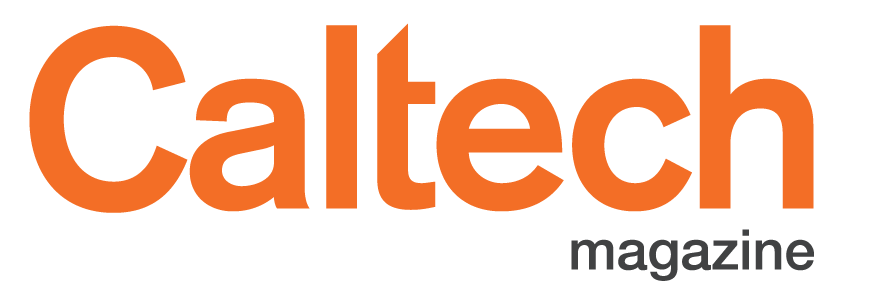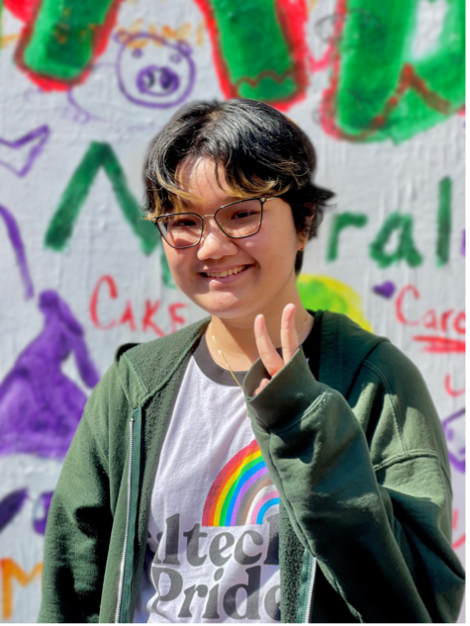#SoCaltech: Get To Know Some Best in Class Students
Photo: Lance Hayashida/Caltech
Caltech students participate in top-notch academics and cutting-edge research, but they also explore their passions and build community through a unique, unparalleled student experience. Learn more about the Initiative for Caltech Students fundraising campaign that will support current and future Techers in Best in Class: Caltech’s Initiative for Students.
“Throughout my childhood, I was horrified by heights. I could barely look over a second-story ledge without getting queasy. After completing my first year at Caltech, I became significantly less deterred from doing things because they were challenging or scary. I resolved that I no longer wanted to be afraid of heights, so I talked six friends into going skydiving with me over the summer. We flew to 13,000 feet and jumped out, eliminating any fear of heights I ever held.”
“Caltech has taught me to be bold, to be dedicated to what I’m passionate about, and to just do things whether they’re hard or not. I have continued to take bold risks in my professional and academic life. I recently took the risk of basing my summer plans around a tentative National Science Foundation grant, which paid off. This summer, I will be traveling around the country and world (or some federally approved subset of it), as a co-entrepreneurial lead on an NSF national Innovation Corps (I-Corps) project with Dr. Chiara Dariao’s group.”—Cristian Ponce, a second-year undergraduate in Blacker House.
Ramona Murugu (second from right) and Thierno Diallo (third from right) with other members of the leadership board of the Black Student Union.”
“Coming in from Kenya, my experience with regards to academics and identity space was never really an issue because nearly everyone in Kenya is of Black identity. Then I came to Caltech, and it was a whole different story. For me, I really loved going to the Black Scientists and Engineers of Caltech (BSEC) meetings—the food served was closer to my cultural food, so that already kind of felt like home, and the activities were really fun. But I was one of only two undergrads who were active in BSEC.
“The two of us realized that undergrad students do want to be part of an identity group, but the timing and organizational structure wasn’t really working for us. That’s why we co-founded the Black Student Union (BSU) to cater to undergraduates as a group within BSEC. And honestly, we’ve been overwhelmed with so much support. We now have about 50 members and 25 allies, so a total group of 75.”—Ramona Murugu, a second-year undergraduate who co-founded Caltech’s Black Student Union with fellow second-year undergrad Thierno Diallo
Jieyu Zheng (second from right) with fellow members of the Women in Biology and Biological Engineering club.
“A lot of graduate students at Caltech went directly from their undergrad to grad school, but I’m a little bit different. I studied food science my first two years of undergrad, then I gradually transitioned into neuroscience research. But in between my undergrad and grad school, I worked in education. I got a master’s degree in educational psychology. So I had some gap work, and now coming to Caltech, I know that I want to do research.
“Doing a PhD, it’s kind of like you are learning and contributing at the same time. You are trying to construct your own science story. You are trying to shine the light on an unknown fact to the rest of the world. And at the same time, you learn all these skills that will help you uncover more in the future.”—Jieyu Zheng, a neurobiology graduate student in the lab of Markus Meister (PhD ’87), the Anne P. and Benjamin F. Biaggini Professor of Biological Sciences.
Rahul Chawlani (second from right) with members of Page House.
“My first year at Caltech was all online due to the COVID-19 pandemic. I was living at home, taking my classes virtually, and I didn’t know anyone. It was really tough. But when I was able to move to campus and live in Page House, it had such a tremendous impact. Besides the obvious (I got to see people again), I was working better, and I was learning more. The simple things like just talking to people, hanging out, getting lunch—the whole community aspect really helps your academic life.”—Rahul Chawlani, third-year undergraduate and former social director of Page House
Chi Cap in front of Dabney House’s mural wall.
“Coming to Caltech was kind of nerve-racking at first, since I am from an underrepresented background, and there were a lot of things about college I was not familiar with as a first-generation college student.
“The house system has been a really great resource for me. The third- and fourth-year undergrads in my house provided a safe space for me to ask anything, like: ‘How do I email a professor asking to do research in their lab?’ and ‘What classes should I take?’ They helped me adjust to college, adjust to Caltech, make friends, and eventually I became the social vice president of my house!
“Now I’m trying to pay it forward by doing the same thing with the first years, and I think that’s made us a really close knit house. It’s really good to have people who have been through what you’re going through, know what you feel like, and can support you through everything.”—Chi Cap, second-year undergraduate, QuestBridge Scholar, and social vice president of Dabney House
“The student advocate roles are so important at Caltech. It can be intimidating for a student to talk to a stranger about something deeply personal, like a Title IX issue or mental health struggles. They feel better about going to someone they know and trust first. Then we can help them feel comfortable seeking help at a higher level when it’s necessary and support them in connecting with those resources.
“As a student advocate, it means so much to me to be the first person someone comes to, and to be the link between their immediate problem and higher-up solutions.”—Aditee Prabhutendolkar, third-year undergraduate, peer advocate, health advocate, Title IX representative, and current Blacker House president
“As a geologist, it’s important to travel and explore to practice geological interpretations of rocks and landscapes. I’m reading about places in scientific papers, and then I can go out there and see what’s actually going on, on foot.
“What drives my research is the search to understand what happened in ancient geologic time. Earth's history is not written explicitly, the only thing you have is the ‘crime scene’—the crime scene being the materials of the solar system: Earth, meteorites, space dust, etc. Any rock could be a significant piece of this puzzle, as they are the products of the geologic and astronomic processes that often operate on timescales far in excess of a human lifetime.
“Geochemistry is concerned with measuring these materials—their chemistry and isotopes—which are tracers of all sorts of phenomena. Measuring chemistry is how we take notes on this crime scene. With these notes, we can start to imagine stories and ask ourselves: ‘Could this story produce this crime scene?’ That’s how we can begin to know what happened in deep geologic time. For example, the geochemistry of magmatic rocks encodes information about the source, location, and character of melting rock to help us better understand the history and processes of Earth's interior and the controls of volcanic eruptions, while carbonate geochemistry can inform us about the temperature, composition, and pH of the ocean and atmosphere in deep time, so that we can better understand how Earth responds to changing climate.”—Ben Thyer, a graduate student in the Division of Geological and Planetary Sciences (GPS), takes every opportunity to explore and is an avid hiker, camper, and photographer.
“I run a scientific blog with several of my peer grad students here, mostly in Mandarin. I was also able to participate in a science communication workshop held by the Chen Institute at Caltech where I made a 5-minute video to describe my research. Later, I participated in the Three Minute Thesis competition, where you have to describe your thesis in three minutes to a nonspecialist audience.
All those experiences were super helpful for me to learn scientific communication skills, and it’s a very fun experience. It’s needed, right? Every scientist should be able to, when you meet someone, describe your research in a very condensed amount of time and in a straightforward way.”—Xinhong Chen, who completed his graduate work in the lab of Viviana Gradinaru, the Lois and Victor Troendle Professor of Neuroscience and Biological Engineering. He will be graduating with his PhD in neurobiology in June.









